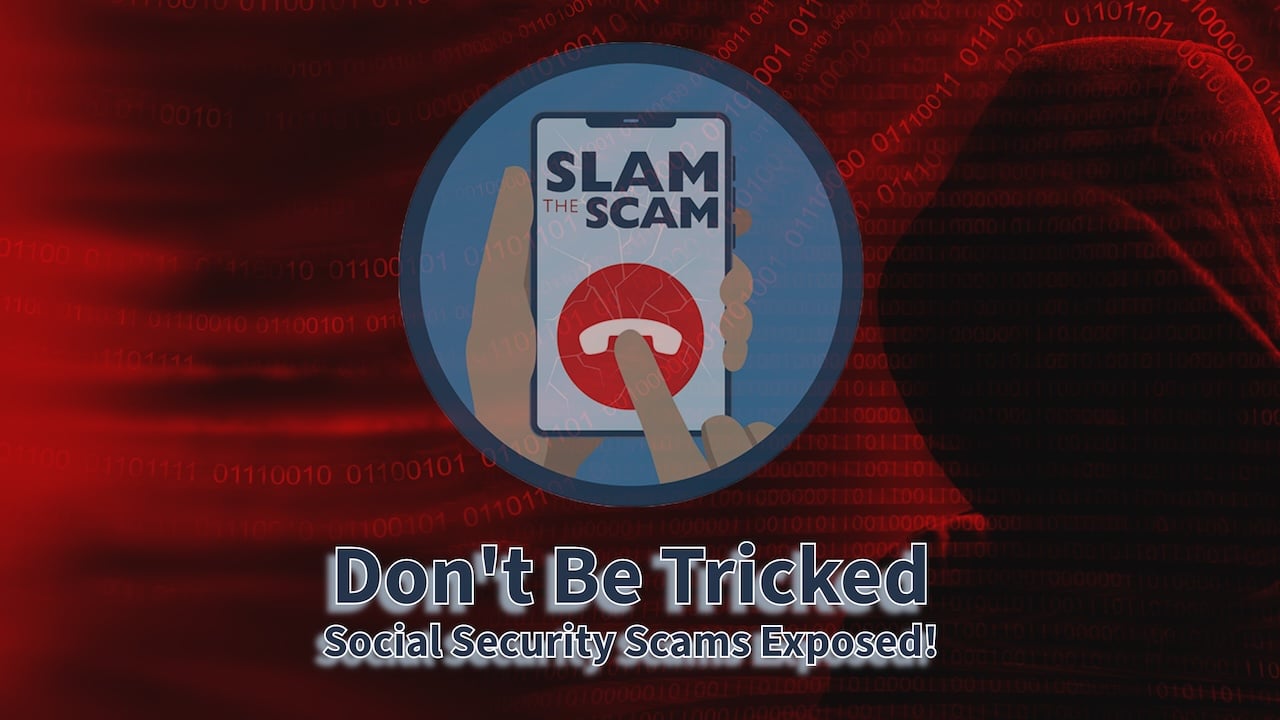Don't Be Tricked: Social Security Scams Exposed!

Introduction
Social Security scams are a pervasive threat, preying on the trust people place in this vital government program. Scammers use fear, urgency, and trickery to steal hard-earned money and personal information. In this blog post, we'll expose these scams, arming you with the knowledge to protect yourself and your loved ones.
Social Security Scams: The Threat to Everyone
No one is immune to the persuasive tactics of Social Security scammers. These criminals relentlessly target seniors, individuals with limited English proficiency, and anyone who might not be fully aware of how the Social Security Administration (SSA) truly operates. It's essential to remember:
- The SSA WILL NEVER threaten you with arrest, legal action, or suspension of your Social Security number.
- The SSA WILL NEVER pressure you to make immediate payments via unusual methods like gift cards, wire transfers, or cash.
- The SSA WILL NEVER demand personal information over the phone or in an unsolicited email.
Common Social Security Scam Scenarios
Let's dissect a few common Social Security scams to understand how they work:
Scenario 1: The 'Suspended' Social Security Number
- The Scammer's Call: You receive a terrifying phone call claiming to be from the SSA. The caller states that your Social Security number (SSN) has been suspended due to fraudulent activity or some other issue. To reactivate your SSN and avoid severe penalties, they demand immediate payment or personal information like your bank account details.
- Why it Works: The threat of losing essential benefits can trigger panic, leading people to act without thinking critically.
Scenario 2: The 'Unexpected' Benefit Increase
- The Scammer's Email: You receive an exciting email, seemingly from the SSA, announcing a surprise increase in your Social Security benefits. However, to process this increase, they require you to 'verify' your information by clicking a link or providing your SSN and birthdate.
- Why it Works: Promises of more money are naturally appealing, especially for those on a fixed income. Fraudsters exploit this desire to lure victims into sharing sensitive details.
Guidance for Businesses: Protecting Your Organization
Businesses also play a role in thwarting Social Security scams:
- Employee Training: Educate your staff on recognizing Social Security scam attempts, especially employees who deal with customer information or handle phone calls.
- Secure Data Handling: Implement strict data protection protocols and limit access to clients' SSNs to essential personnel only.
- Clear Communication Policies: Establish guidelines for communicating with clients, making it clear that the SSA will primarily use formal mail and will never request immediate payments or sensitive information over the phone.
Consumer Empowerment: Your Shield Against Scams
Knowledge is your most potent defense! Here's how to safeguard yourself:
- Hang Up & Verify: If you receive a suspicious call purportedly from the SSA, hang up immediately. Contact the SSA directly through their official phone number (1-800-772-1213) or visit their website to confirm any issues.
- Guard Your SSN: Treat your SSN like the precious key it is. Never share it unless absolutely necessary and be wary of requests for it from unexpected sources.
- Never Click in Haste: Don't click links in emails or texts claiming to be from the SSA. Type the SSA website address directly into your browser.
- Stay Informed: "If you receive a suspicious letter, text, email, or call, do not respond." – Social Security Administration https://www.ssa.gov/scam/resources.html.
Resources: Your Anti-Scam Toolkit
- Social Security Administration - Scam Awareness: https://www.ssa.gov/scam/
- Office of the Inspector General (OIG) for SSA - Scam Awareness: https://oig.ssa.gov/scam-awareness/scam-alert
- Federal Trade Commission (FTC) - Report Fraud: https://reportfraud.ftc.gov/

